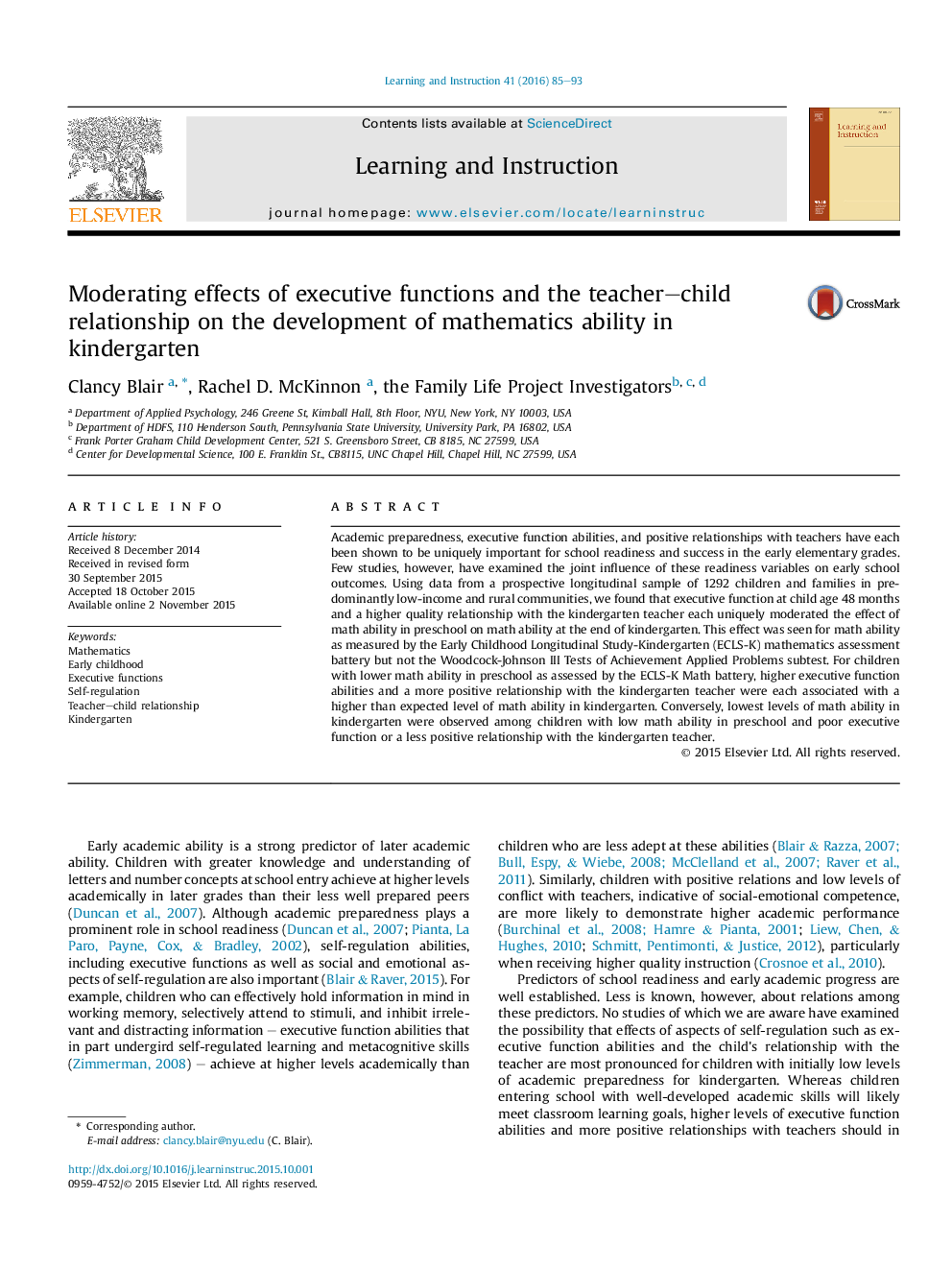| Article ID | Journal | Published Year | Pages | File Type |
|---|---|---|---|---|
| 365491 | Learning and Instruction | 2016 | 9 Pages |
•We examine effects of self-regulation on school readiness.•We find that self-regulation can help compensate for poor math ability in preschool.•We found effects for one measure of math but not another.•Although we analyze math, findings may extend to academic learning generally.
Academic preparedness, executive function abilities, and positive relationships with teachers have each been shown to be uniquely important for school readiness and success in the early elementary grades. Few studies, however, have examined the joint influence of these readiness variables on early school outcomes. Using data from a prospective longitudinal sample of 1292 children and families in predominantly low-income and rural communities, we found that executive function at child age 48 months and a higher quality relationship with the kindergarten teacher each uniquely moderated the effect of math ability in preschool on math ability at the end of kindergarten. This effect was seen for math ability as measured by the Early Childhood Longitudinal Study-Kindergarten (ECLS-K) mathematics assessment battery but not the Woodcock-Johnson III Tests of Achievement Applied Problems subtest. For children with lower math ability in preschool as assessed by the ECLS-K Math battery, higher executive function abilities and a more positive relationship with the kindergarten teacher were each associated with a higher than expected level of math ability in kindergarten. Conversely, lowest levels of math ability in kindergarten were observed among children with low math ability in preschool and poor executive function or a less positive relationship with the kindergarten teacher.
